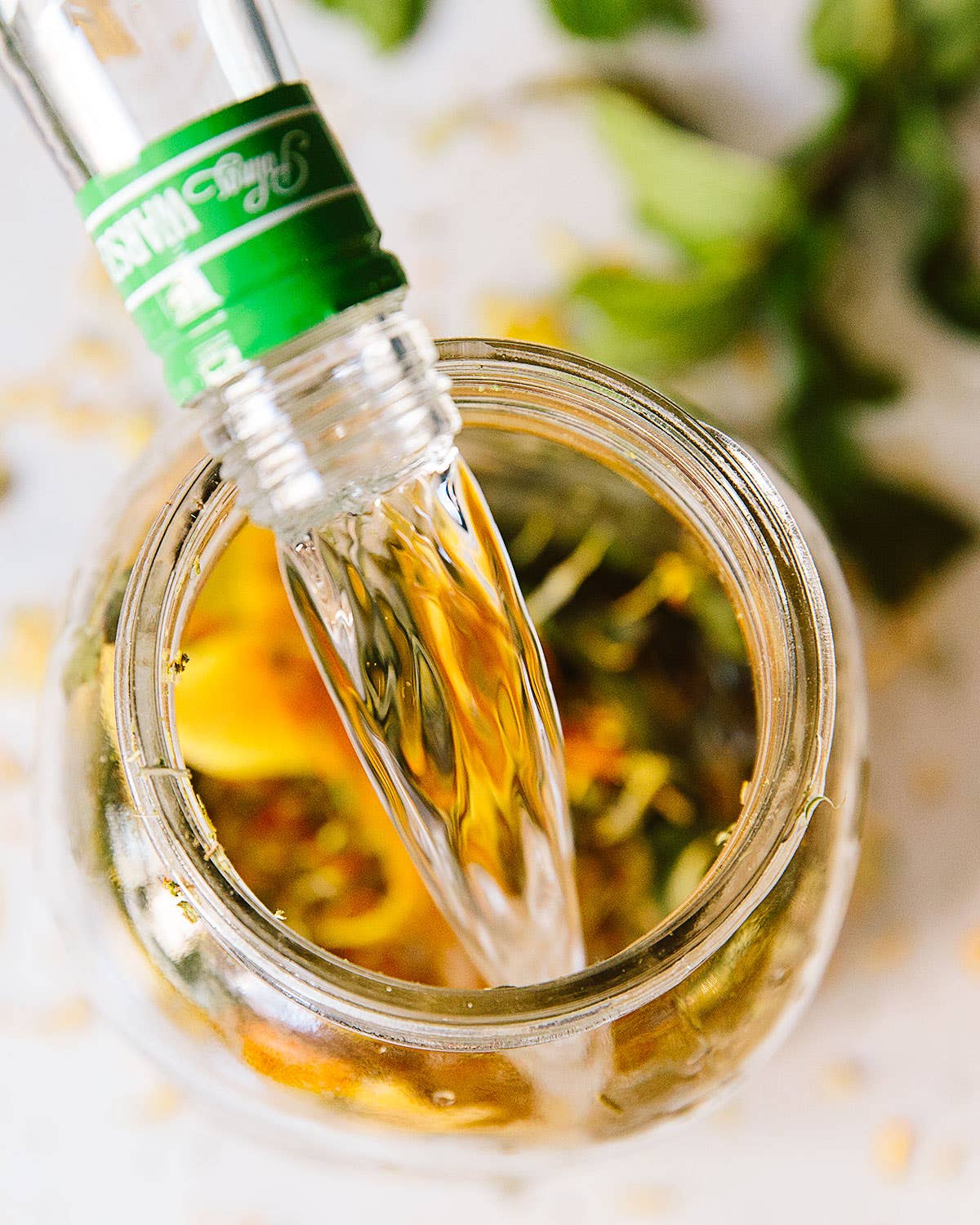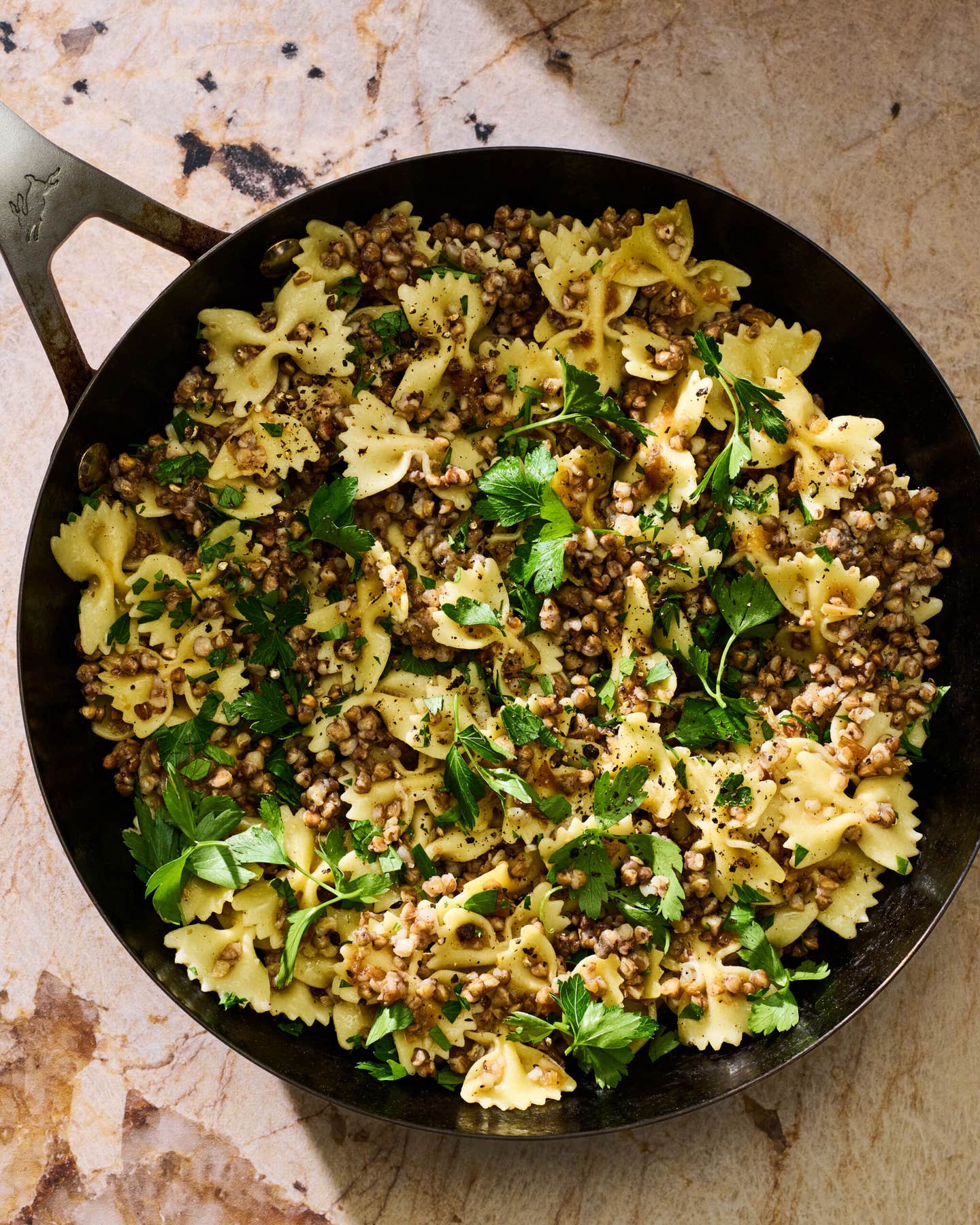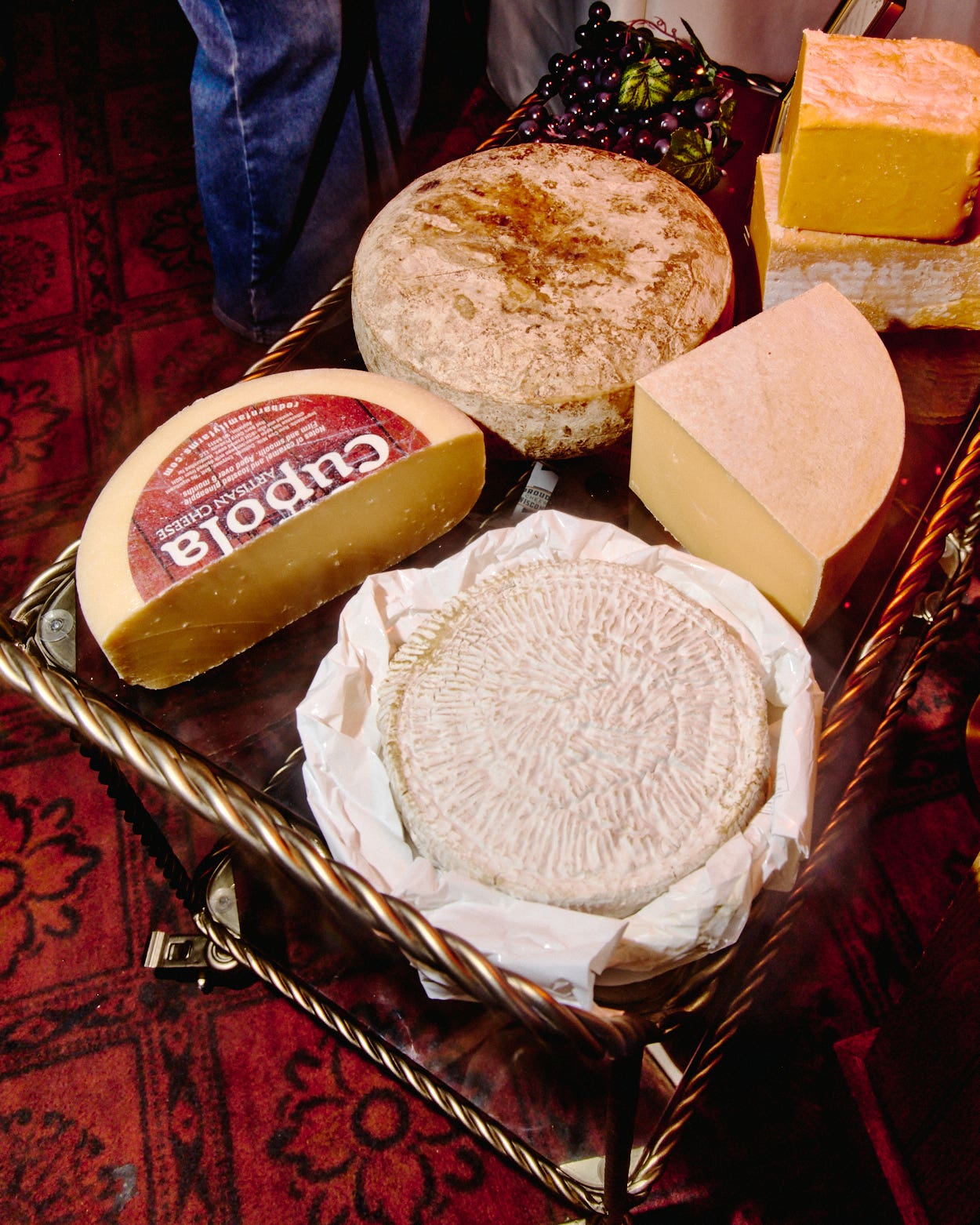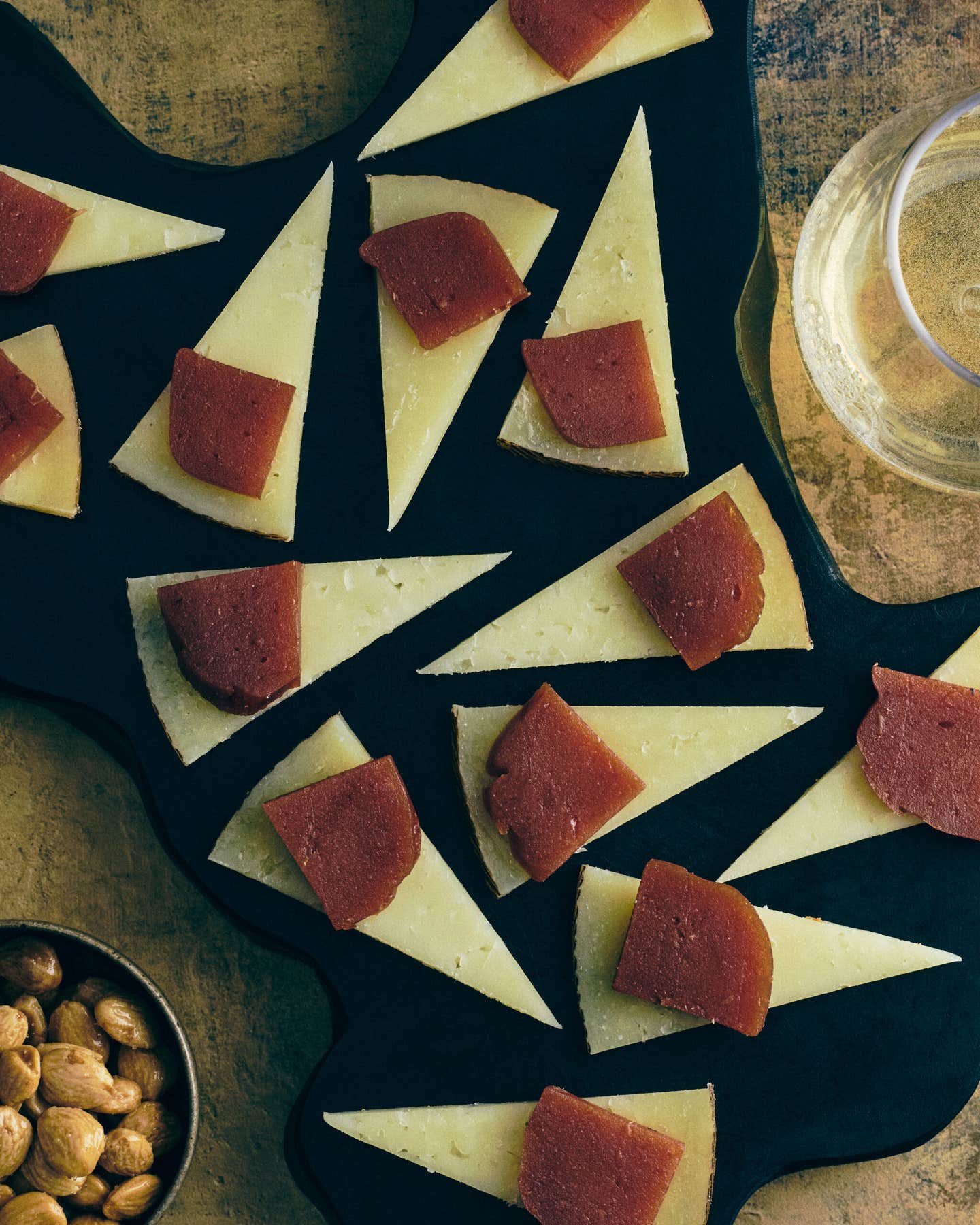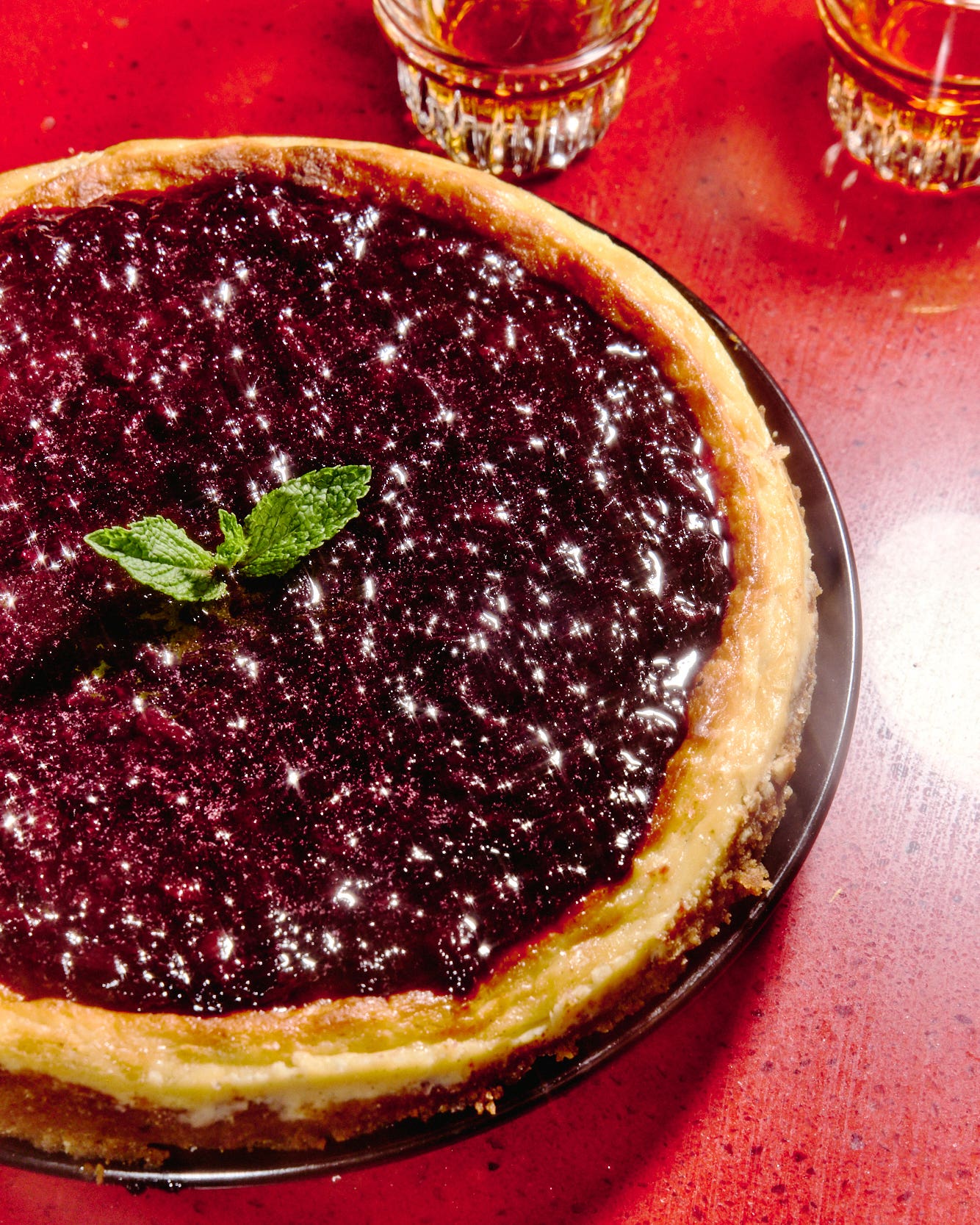
How to Stock a Nigerian Pantry
A Nigerian-born cook and recipe developer in Brooklyn on her homeland staples
Growing up in Berlin, Yewande Komolafe rarely cooked. But after she moved to the States at age 16 and worked for 15 years in restaurant kitchens (Restaurant Eugene in Atlanta, New York’s Momofuku Milk Bar), she developed a newfound curiosity about her native cuisine. Her investigation blossomed into a dinner series called “My Immigrant Food Is…” exploring how immigrants adapt their cooking in a foreign land.
Her first dinner delved into her own heritage, including an initial attempt at pepper soup, a Nigerian classic. "My mother, who still lives in Lagos, guided me," she says. Komolafe, now a professional recipe developer, received additional pointers from Tunde Wey, a Nigerian cook living in New Orleans (and founder of the Blackness in America dinner series), YouTube, and a wise woman from her local African grocery, where she picks up suya spice, black cardamom, and garri.
Suya Spice: "Used as a dry rub, suya is a blend of ginger powder, chile powder, onion powder, paprika, garlic powder, sea salt, and kuli kuli, a classic Nigerian snack of ground peanuts and spices. In Nigeria, suya spice is rubbed onto meat or anything you might cook on the grill. You can find it prepackaged at African groceries."

Garri: "Fermented cassava that's been dehydrated or dried and ground into a coarse flour, garri is used to make eba, a sort of stiff mashed potato dish. And depending on what region you're in, each garri is prepared differently. In some areas, it's more fermented, and in parts of eastern Nigeria, it's fried in palm kernel oil to make yellow garri."
Pepper Soup Spice: "I recently made pepper soup, a classic, glossy, spicy soup made with a light broth and fish or goat meat, for the first time. The spice mixture includes calabash nutmeg, negro pepper (also called uda seeds), and alligator pepper seeds. I like to grind my own mix, but preground versions can be found at African grocery stores, too."

Black Cardamom: "I first discovered this dark, podlike spice in a vegetarian chili dish, and now I drop them into soups or sautés whole, letting them steep before taking them out at the end. It's smoky and deep, unlike green cardamom, which is herbaceous and floral."
Scotch Bonnet Peppers: "In Nigeria, these bright orange [hot] peppers are used in everyday cooking. I also put them in everything. I made a pasta sauce with them recently and will often put them into a base with onions and garlic. They're a very fluid ingredient: You can use them in marinades, pickle them, chop them up and add them to eggs, or throw them into a sofrito."
Palm Oil: "Growing up, I remember palm oil was always freshly pressed. Thick, even when heated, it adds depth that vegetable or olive oil doesn't. It gives soups or stews complex fruitiness and richness."
Plantains: "You can find these at every African grocery. I like mine really ripe—almost totally black on the outside, and sugary sweet. They can be sliced and deep fried, or roasted and mashed."
Najia Wildflower Honey: “My mother brings this when she comes to visit from Nigeria. I pull it out when I’m craving something with lots of flavor and use it as a finishing highlight over crème brûlée, cream puffs, or yogurt. It’s deep and dark and rich like molasses or toasted millet.”
Keep Reading
Continue to Next Story
